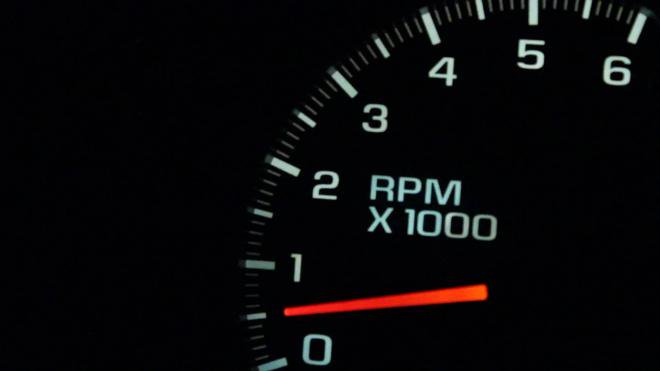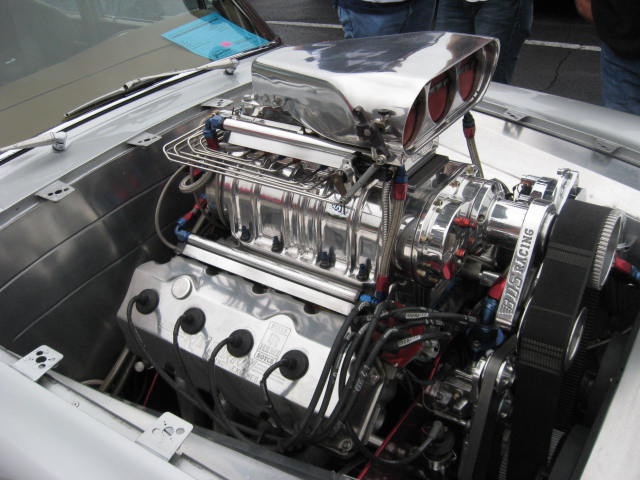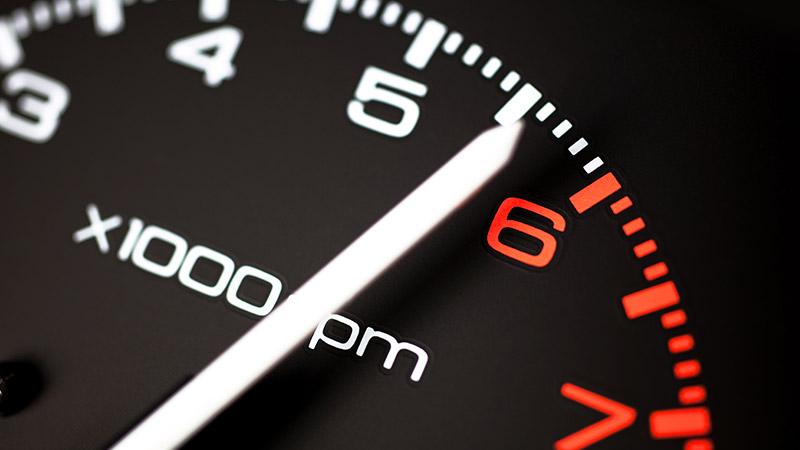Have you ever experienced your car’s engine start revving erratically while stationary? It’s essential to comprehend this problem for the well-being and performance of your vehicle.
So why does my RPM go up and down while parked? In this topic, we will expose the main culprits and resolutions for a car that revs when parking.
Contents
RPM fluctuating: A Normal Engine Function
RPM or Revolutions Per Minute is a parameter that affects vehicle performance, closely linked to power and torque.
Simply put, RPM is the number of revolutions of the car engine in 1 minute measured in RPM, displayed on the engine rev counter in the digital instrument cluster (dashboard).
The RPM is inversely proportional to the gear levels on the vehicle and proportional to the vehicle’s power, reaching a maximum index of 5,000 – 7,000 rpm. For each vehicle gear level, the ideal engine RPM is different.

For gasoline engines, the vehicle’s starting rotation speed reaches 50 rpm. When the car is not moving and you are not stepping on the accelerator, the RPM is usually between 600-100m. At this time, the temperature falls around 80-90 degrees, not too hot, enough to ensure the engine operates stably and smoothly.
As for diesel engines, the average rotation speed when starting the engine is 90 rpm. This slight up-and-down movement helps maintain a smooth idle and ensures the engine runs efficiently. So it is normal for the engine idle speed to fluctuate a small amount.
In case your car is not running for some time, when restarting you will feel your car jerky. This is when the car automatically increases the engine rpm to 1000. You don’t need to worry too much when you see a sudden increase in engine rpm in this case, because this is a normal car engine mechanism.
Why Does My RPM Go Up And Down While Parked?
Unstable RPM while parking occurs when the RPM changes continuously and regularly, unable to maintain the necessary stability. Your RPM moving while in park is normal If the RPM fluctuations are a small amount.
But when this number is excessive compared to the standard level, it’s time to investigate the reasons behind this problem:
Dirty throttle body
The first thing to go and look at is going to be the throttle body. The main job of the throttle body is to control air intake to the engine. The throttle body has a butterfly valve that opens or closes in response to the push you give to give gas pedal. The position of butterfly valves affects how much air is entering the engine.
At idle, when you release the gas pedal, your throttle valve is almost closed. But If this part is clogged with sticky carbon deposits, the throttle valve may experience slight binding as it opens or closes.
This binding can cause the throttle valve to remain more open than intended, disrupting the optimal air-fuel ratio and leading to undesired fluctuation RPM at idle.
The idle air control valve itself
The IAC valve controls the amount of air that bypasses the throttle plate and is used to control the idle speed of the engine. What will happen if this little device doesn’t work properly?
If the IAC valve is stuck open, excessive air will enter the engine which causes a lean air-fuel mixture and causes RPM going up and down while driving and parking
If sooted or damaged, the IAC may operate inconsistently, resulting in codes P0505, P0506, and P0507 when inspected. These are secondary symptoms that indicate a faulty IAC valve.
Vacuum leak
Next on the list, we have vacuum leaks. If air gets into the engine without being measured by a MAF sensor, it is termed a “vacuum leak”. Your engine relies on a precise balance of air and fuel to run smoothly. The ECU adjusts the amount of fuel based on air entering the engine.
If the ECU can’t determine the correct amount of fuel to be injected, the imbalanced air-fuel ratio results in inefficient combustion. In response, the engine might rev up to try and compensate for the extra air, only to overshoot and need to adjust back down. And this can cause the RPM to go haywire.
Clogged engine parts
A restricted engine air filter can disrupt the airflow entering the engine. At idle, there is already less air entering the engine. If an air filter is clogged, this disrupts the delicate air-fuel balance, potentially leading to fluctuating RPMs.
Similarly, a dirty throttle body (the valve that controls airflow) or clogged fuel injectors can also contribute to the problem by hindering smooth fuel delivery.

Throttle position sensor
A throttle body sensor is used to measure how open the throttle valve is and therefore controls the amount of air that can flow into the engine intake manifold and sends signals to the engine’s PCM about the throttle position.
If that signal is inconsistent, it will cause the engine to operate unstable and the engine rpm will fluctuate immediately. Often the engine will idle fine but will have difficulty accelerating.
This is because the computer isn’t telling the engine to inject as much fuel as is required while at the same time, the airflow is increasing.
Damaged ignition system
When the engine’s ignition system cannot distribute sparks evenly and sufficiently, it is easy for the RPM to fluctuate up and down abnormally.
This problem often originates from causes such as broken spark plugs/plug wires, ignition coils, etc. In addition, installing a damaged distributor also hinders the spark distribution process. Old cars are susceptible to this phenomenon.
Watch more:
Why You Shouldn’t Ignore The Fluctuation?
Leaving a problem with fluctuating RPMs unaddressed can cause further issues down the road. It not only affects the vehicle’s performance but can also harm the engine if not treated promptly.
- Loss of engine performance: Fluctuating engine rpm can reduce engine performance and increase fuel consumption, negatively impacting the life of the powertrain.
- Affects other systems in your vehicle: Unpredictable increases and decreases in engine rpm can cause negative effects on other systems in the car, including the suspension system, transmission system, and tire system. , braking system, and steering system.
- Increase emissions: If the engine rpm is not running correctly, the exhaust system can cause black smoke, and bad odors and increase toxic emissions into the environment, affecting human health and the living environment.
To wrap up, a minor fluctuation in RPM while parked is normal. However, if the revs become excessive, it’s important to have your car checked by a mechanic to avoid further problems.
What do you think about the above experiences? Please leave your comments below in the comments section.



